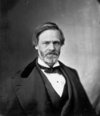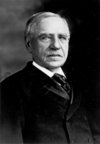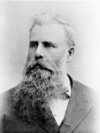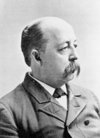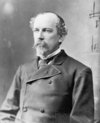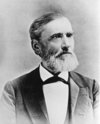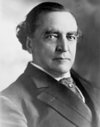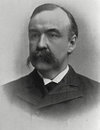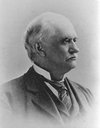Members of the Committee
Republicans
All four Republicans joined Senator Morgan in the majority opinion of the Morgan Report, with only a minor dissent regarding the constitutionality of Cleveland's appointment of Blount and Blount's actions as a secret agent in Hawaii.
John ShermanIn regards to the disarming of blacks in the South in 1871, Senator John Sherman (R., Ohio) stated that "[w]herever the Negro population preponderates, there they [the KKK] hold their sway, for a few determined men ... can carry terror among ignorant Negroes . . . without arms, equipment, or discipline." (CONG. GLOBE, 42nd Cong., 1st Sess. 154 (1871).) |
Wm. P. Frye |
J. N. Dolph |
Cushman K. Davis |
Democrats
All four Democrats besides Senator Morgan took part in the minority opinion of the Morgan Report, and asked for censure of Minister Stevens. Despite their disagreement with some of the findings of the majority report, they also held the U.S. peacekeepers blameless in their conduct during the overthrow.
M.C. ButlerSenator Matthew Calbraith Butler of South Carolina sponsored a proposal to provide federal aid to southern blacks who wanted to leave the United States. The bill called for a modest appropriation of five million dollars per year to launch the project. The Butler Emigration Bill was a half-baked and half-hearted attempt by southern Democrats to provide an alternative solution to the South's race problem. Some contemporaries contended (and most historians agree) that Butler's true intention behind the bill was only to antagonize the Republicans. |
David Turpie |
John W. DanielDaniels was known as the Lame Lion of Lynchburg since he was seriously wounded at the Battle of the Wilderness while serving as a Major in the Confedarate Army. |
George Gray |
John T. Morgan | |
